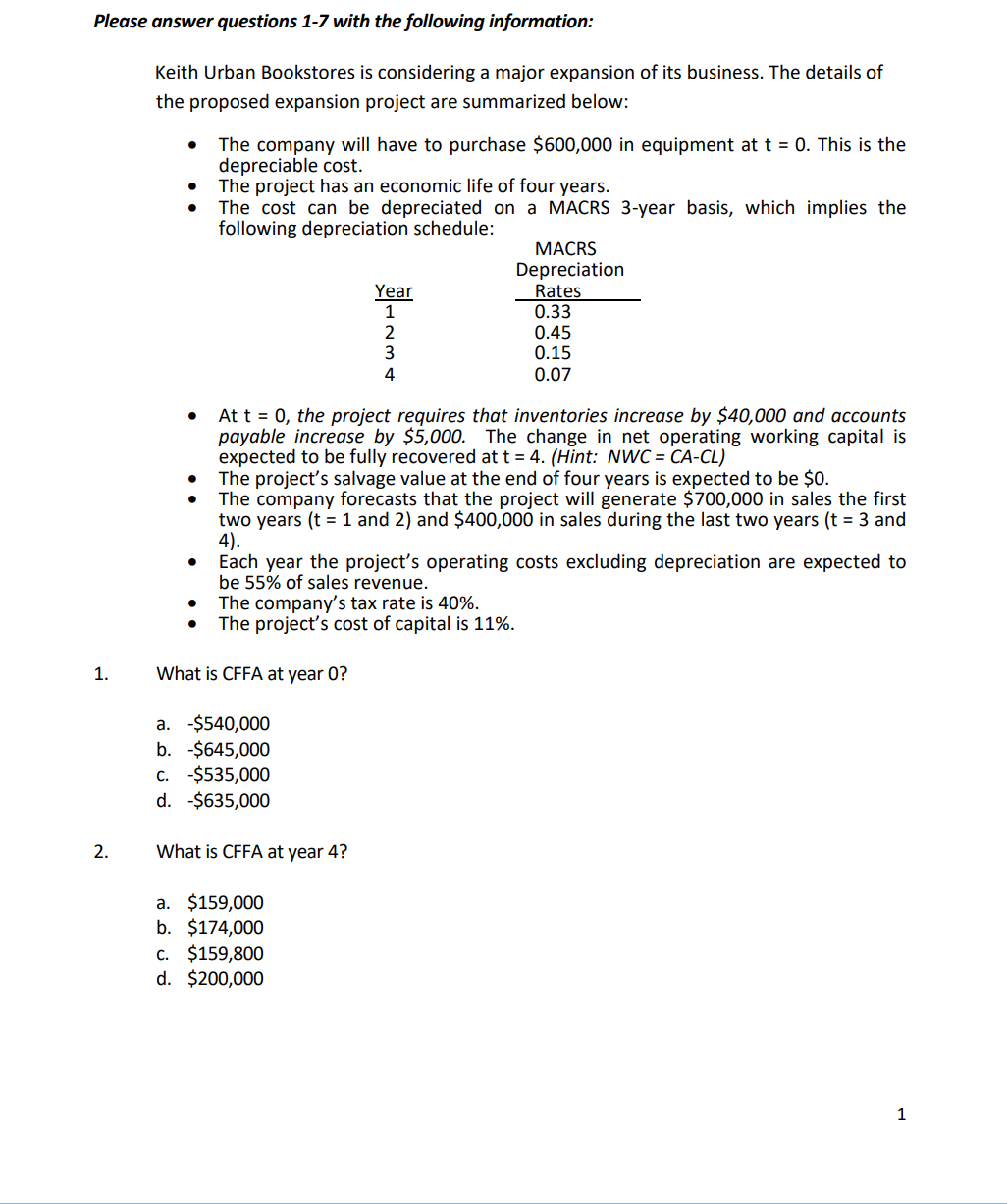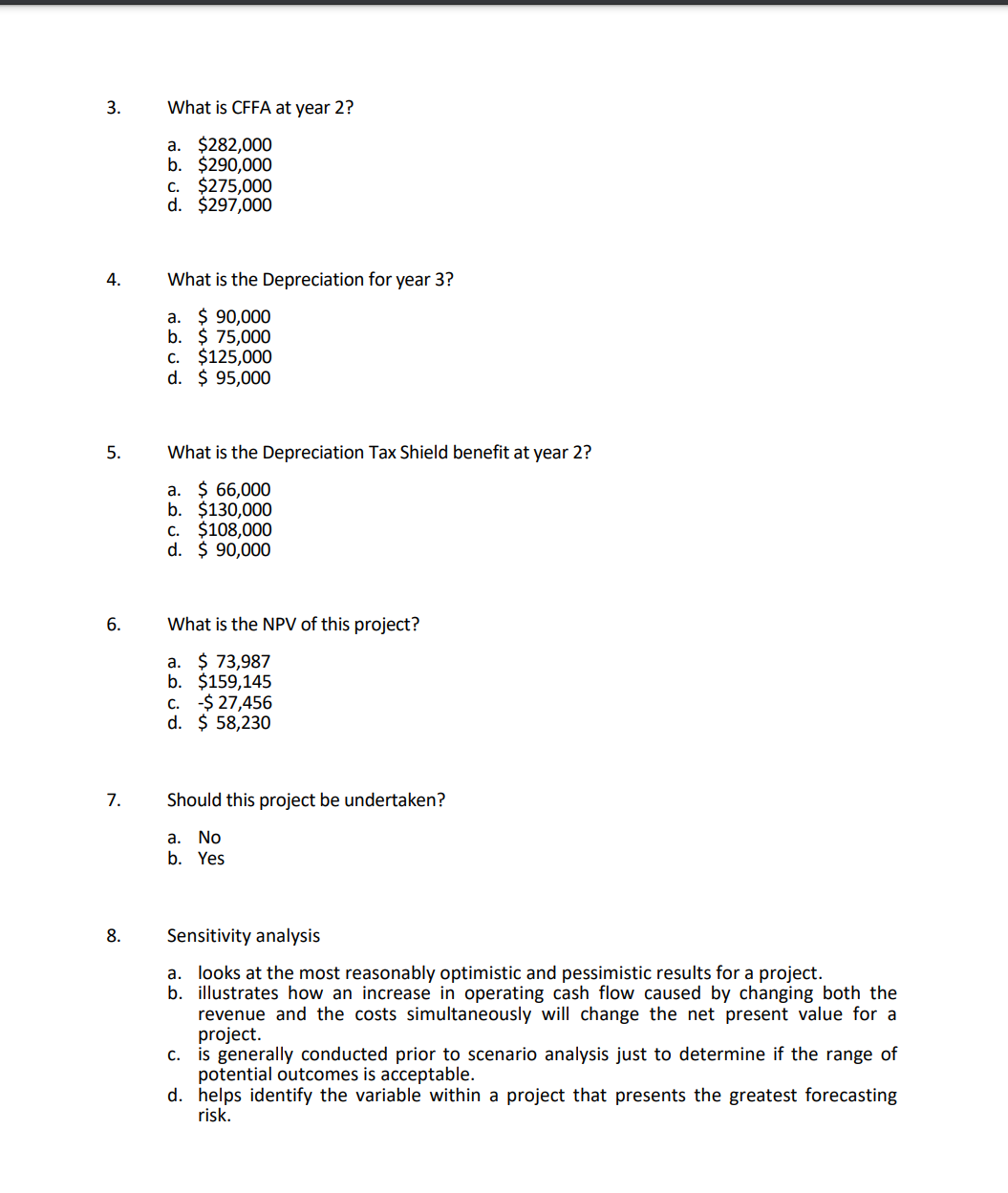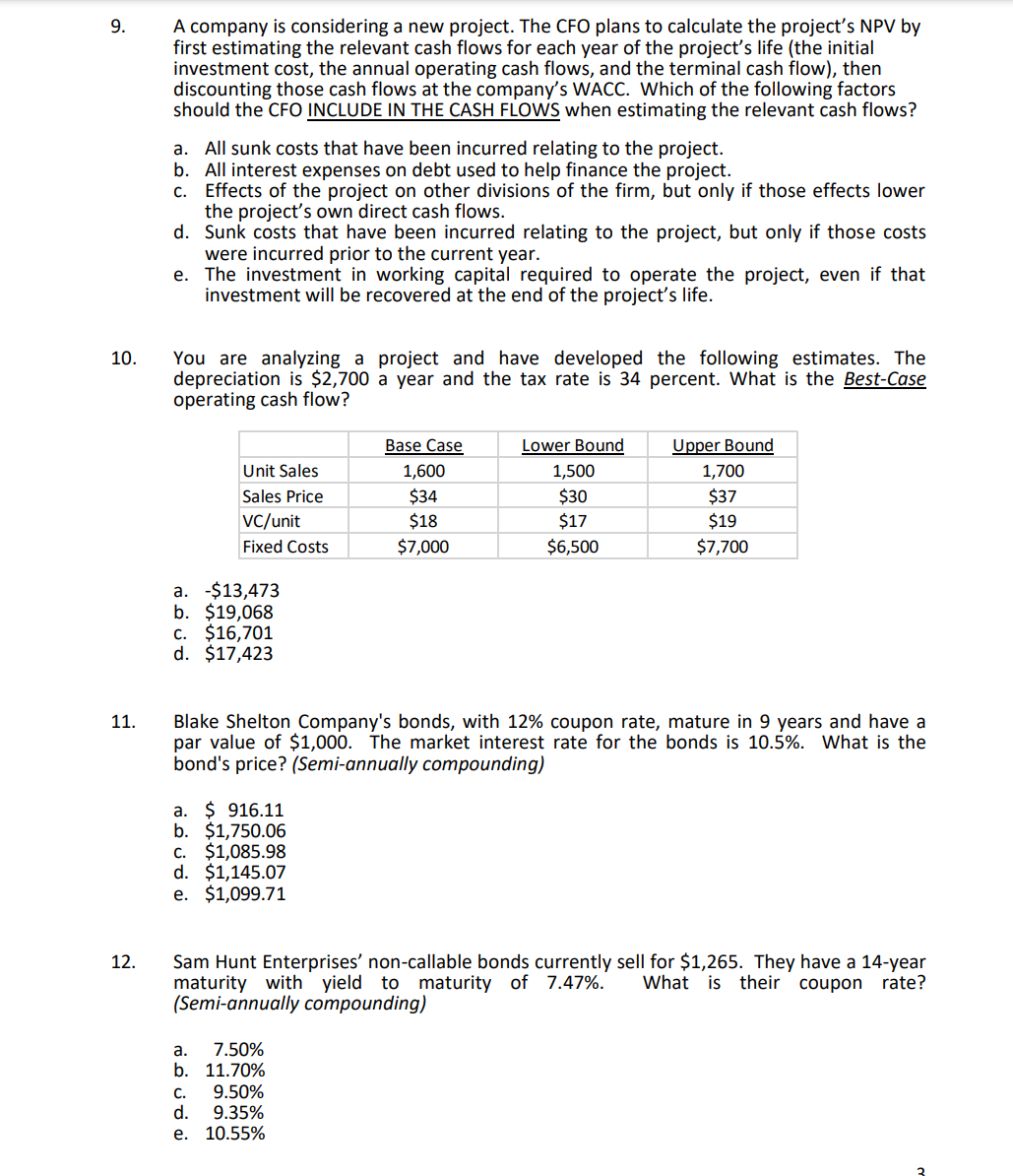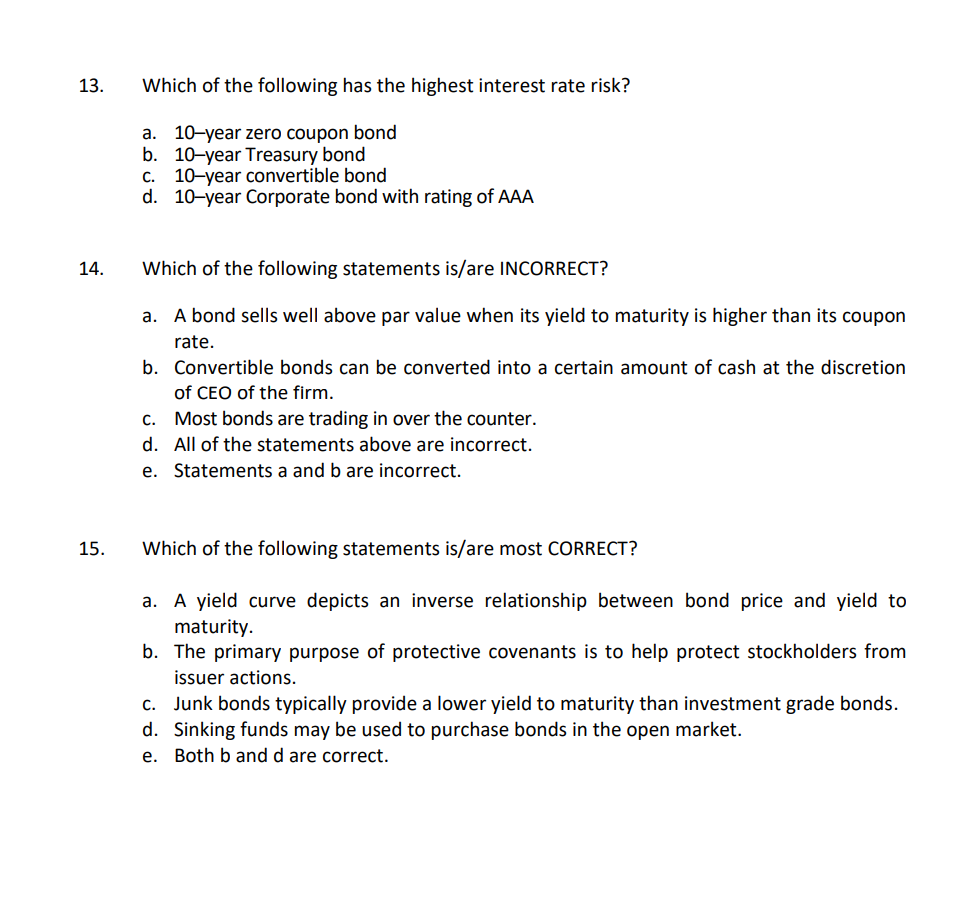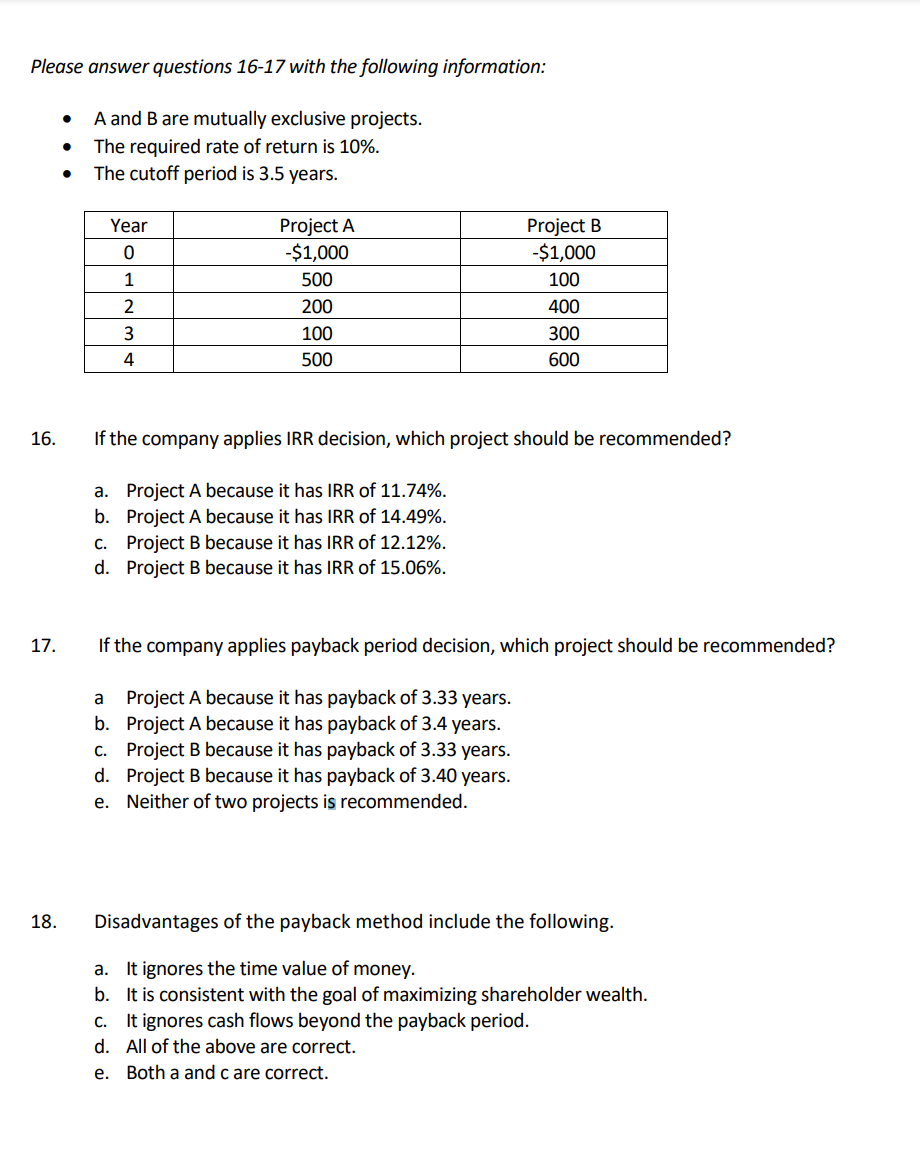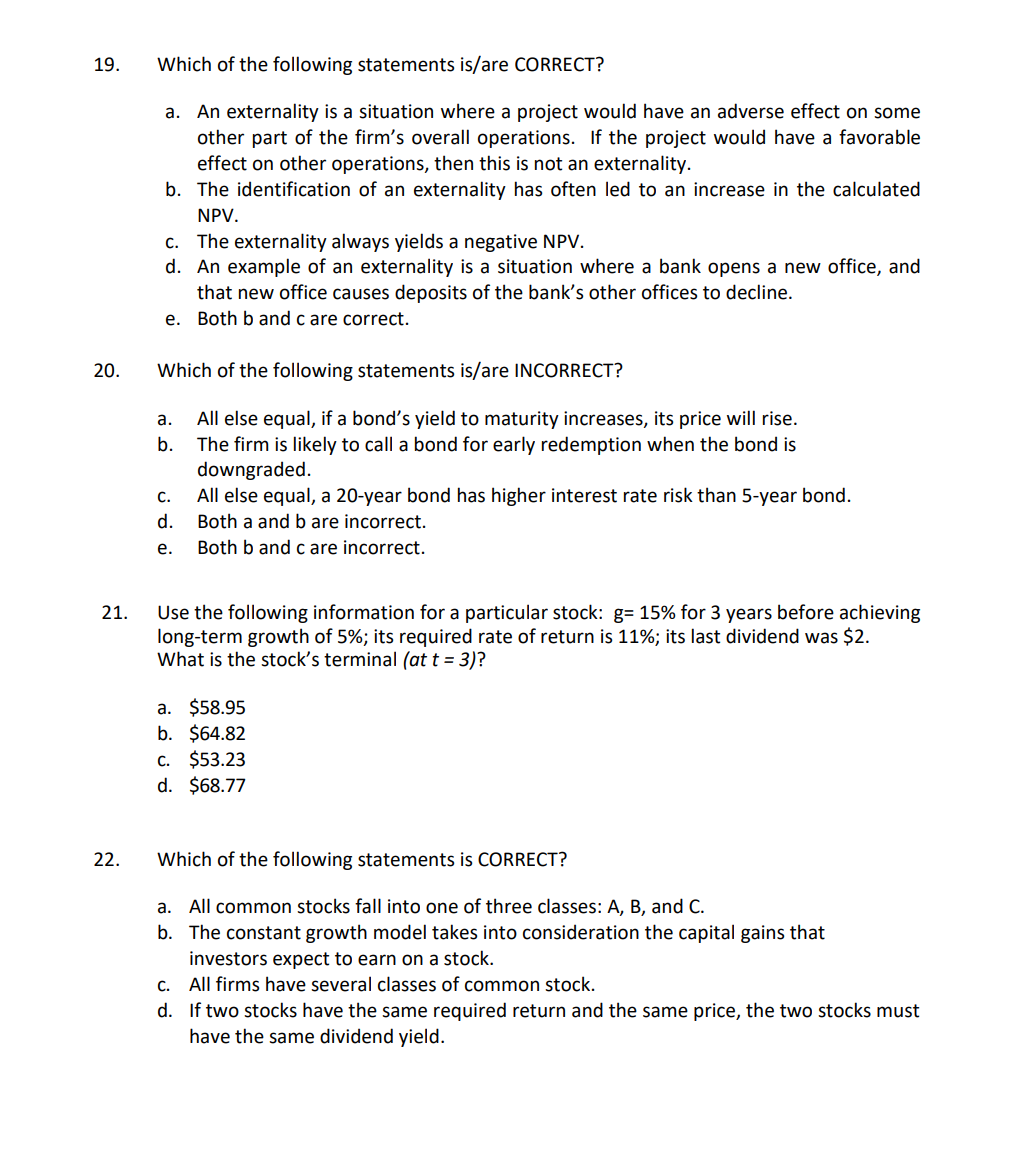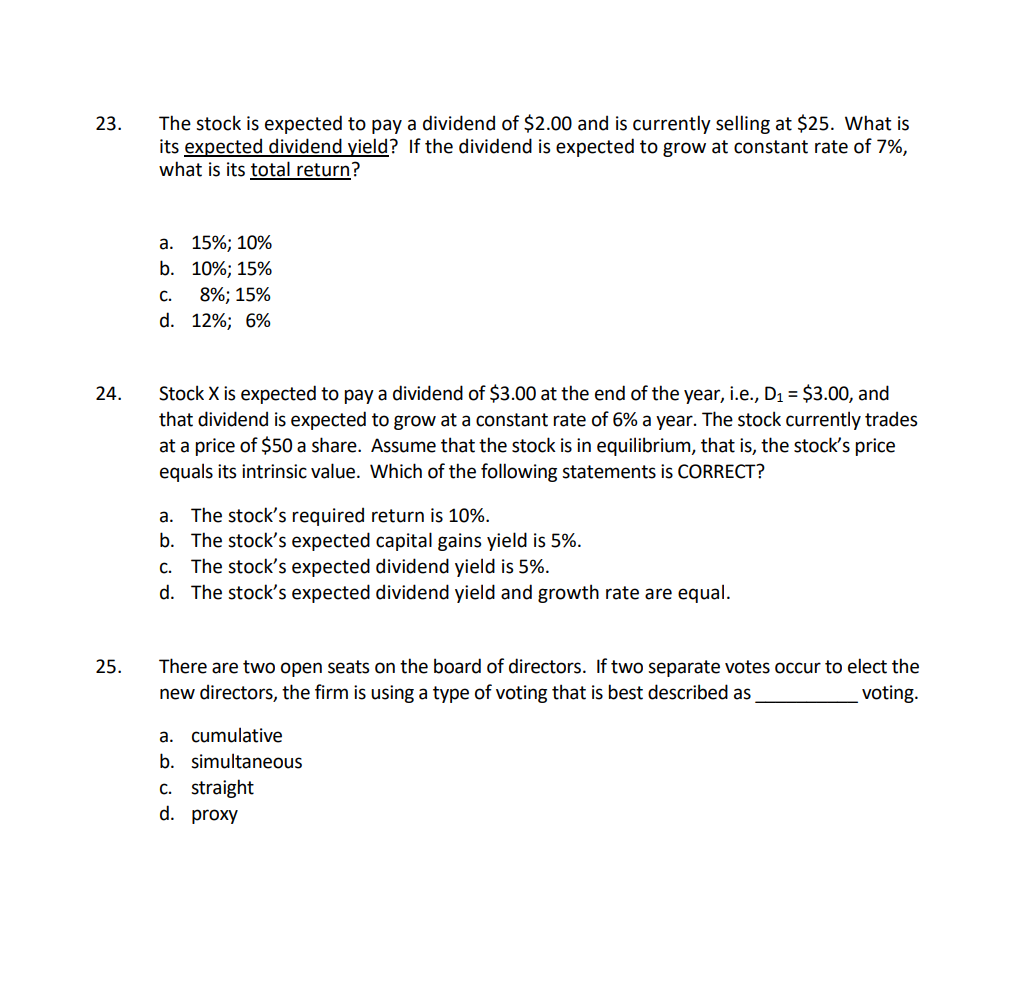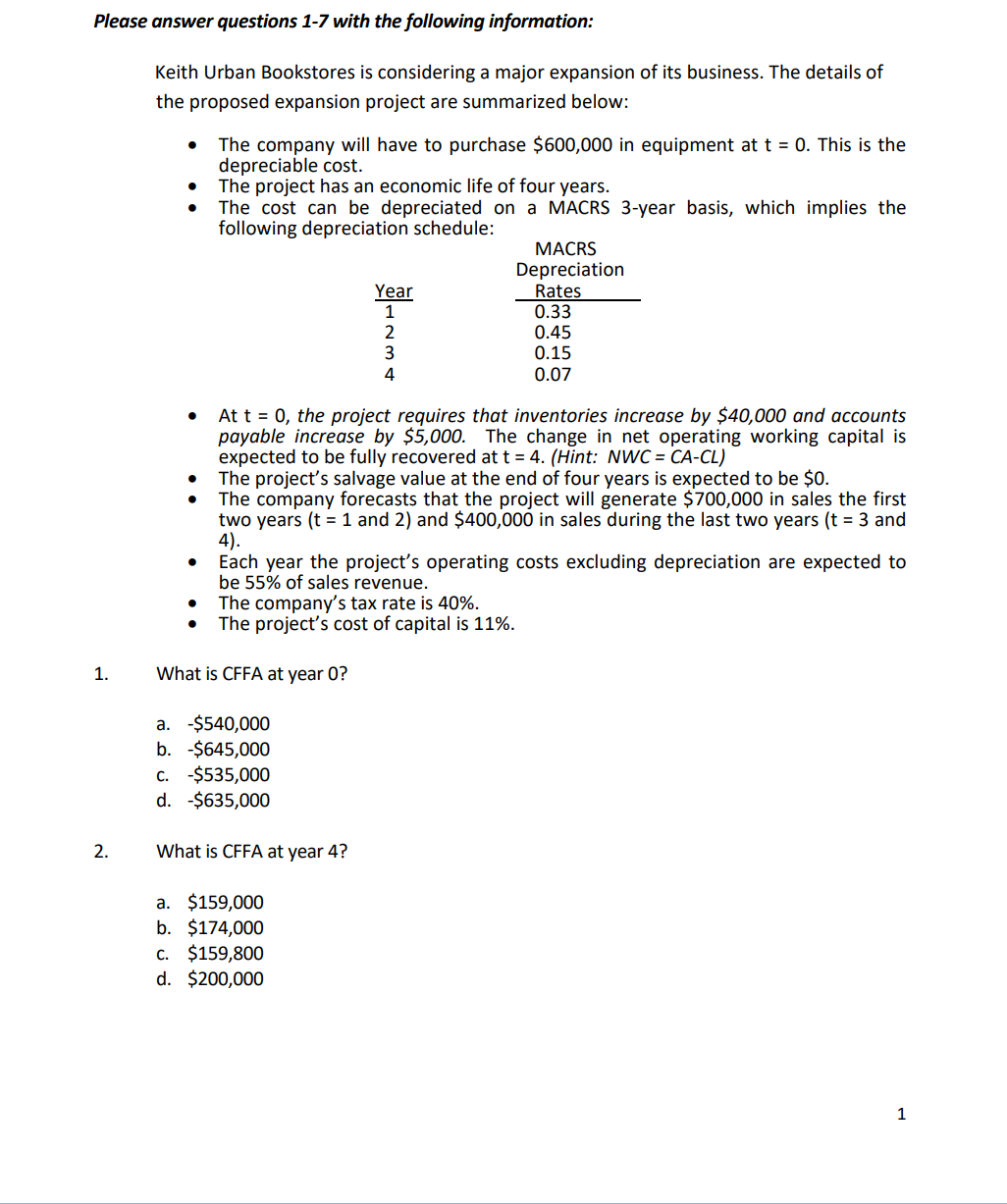
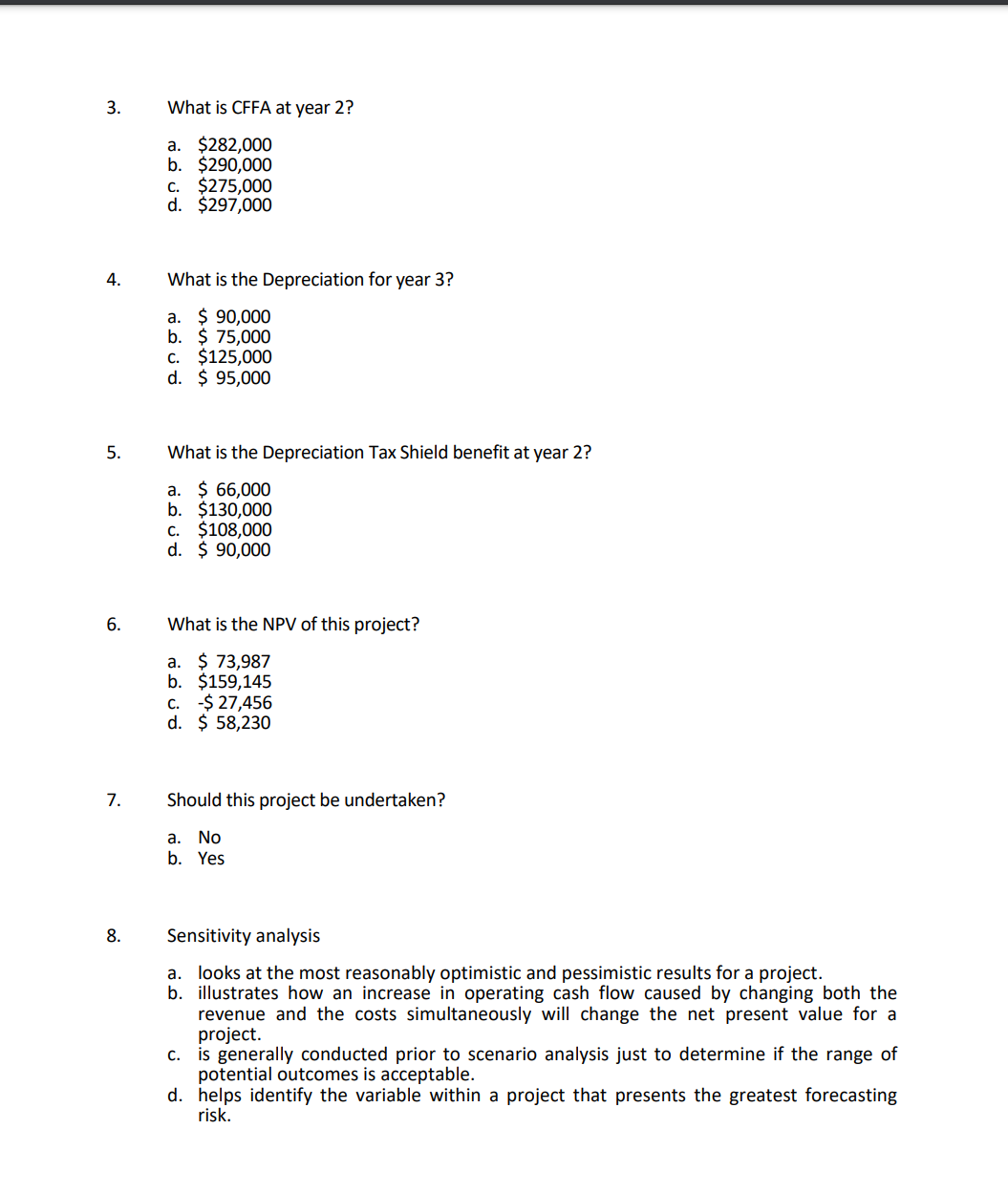
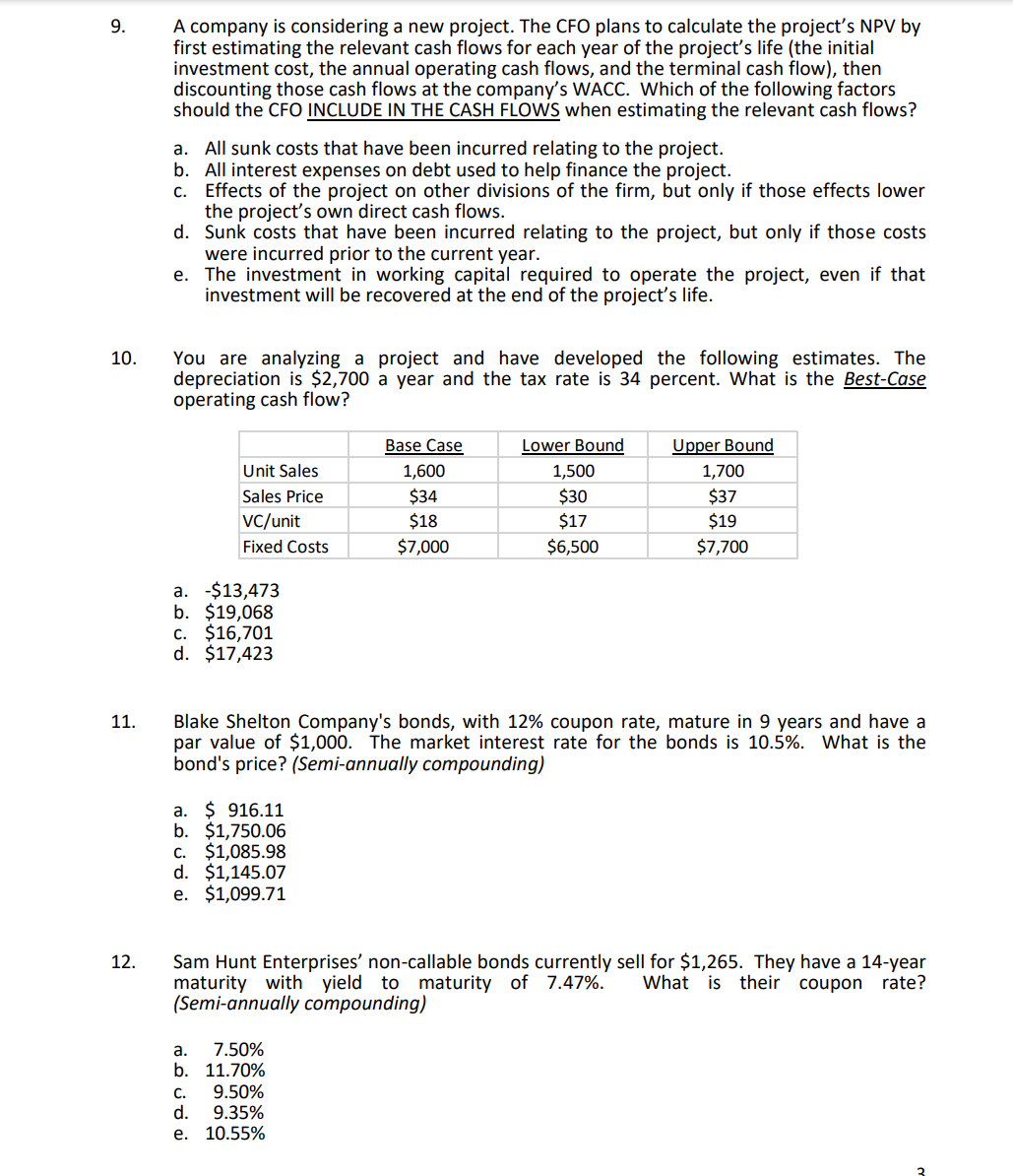
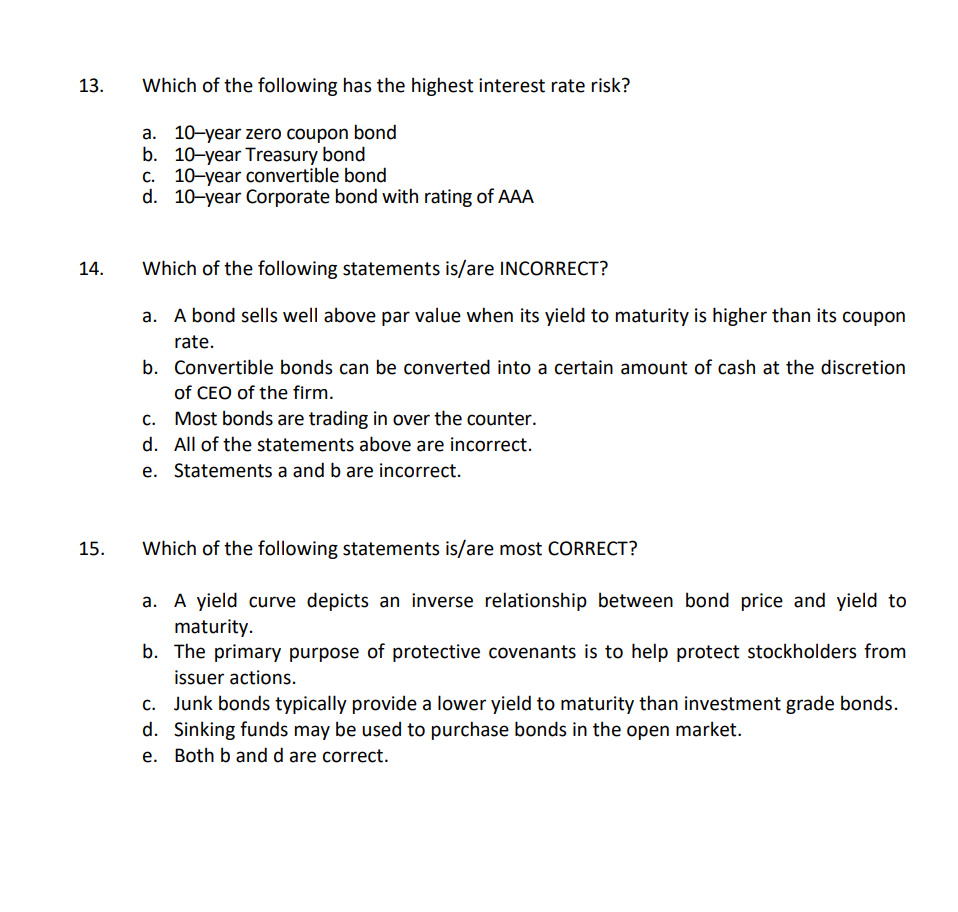
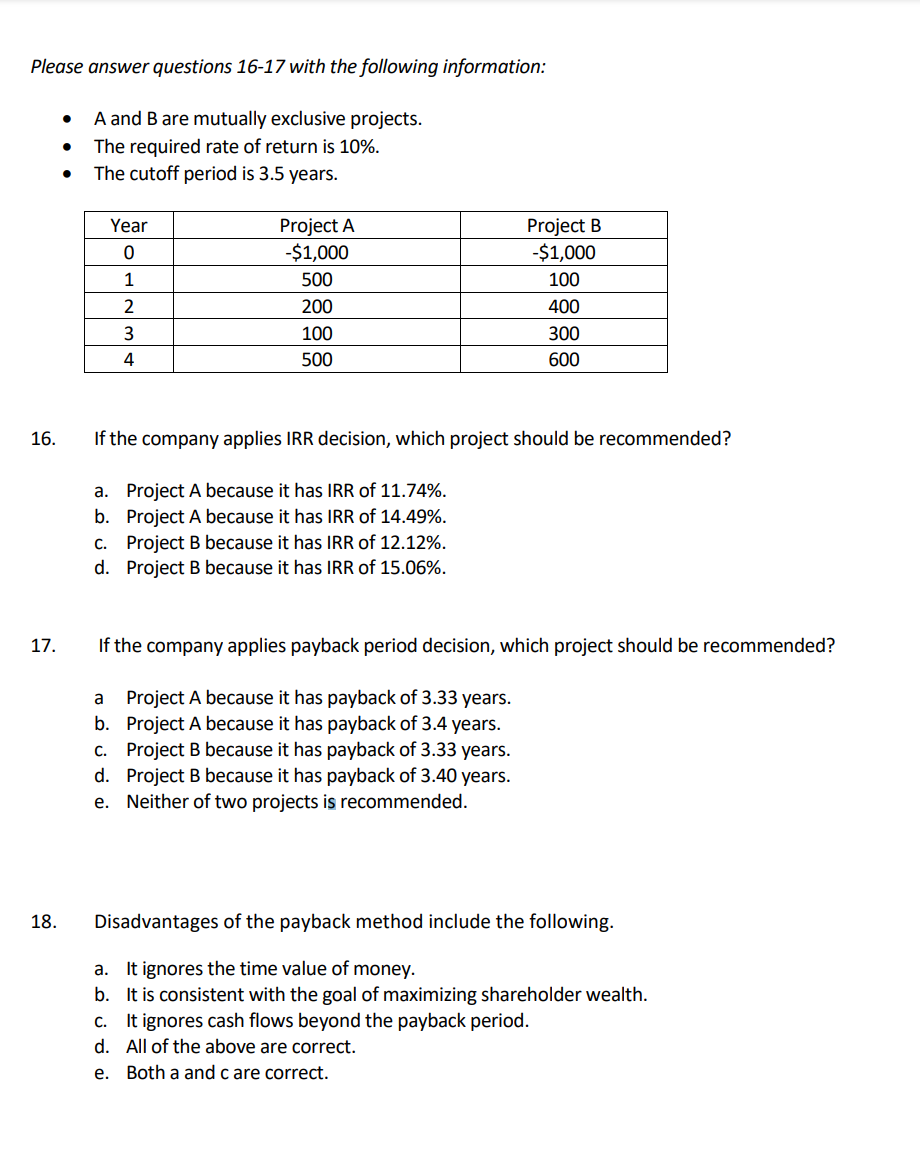
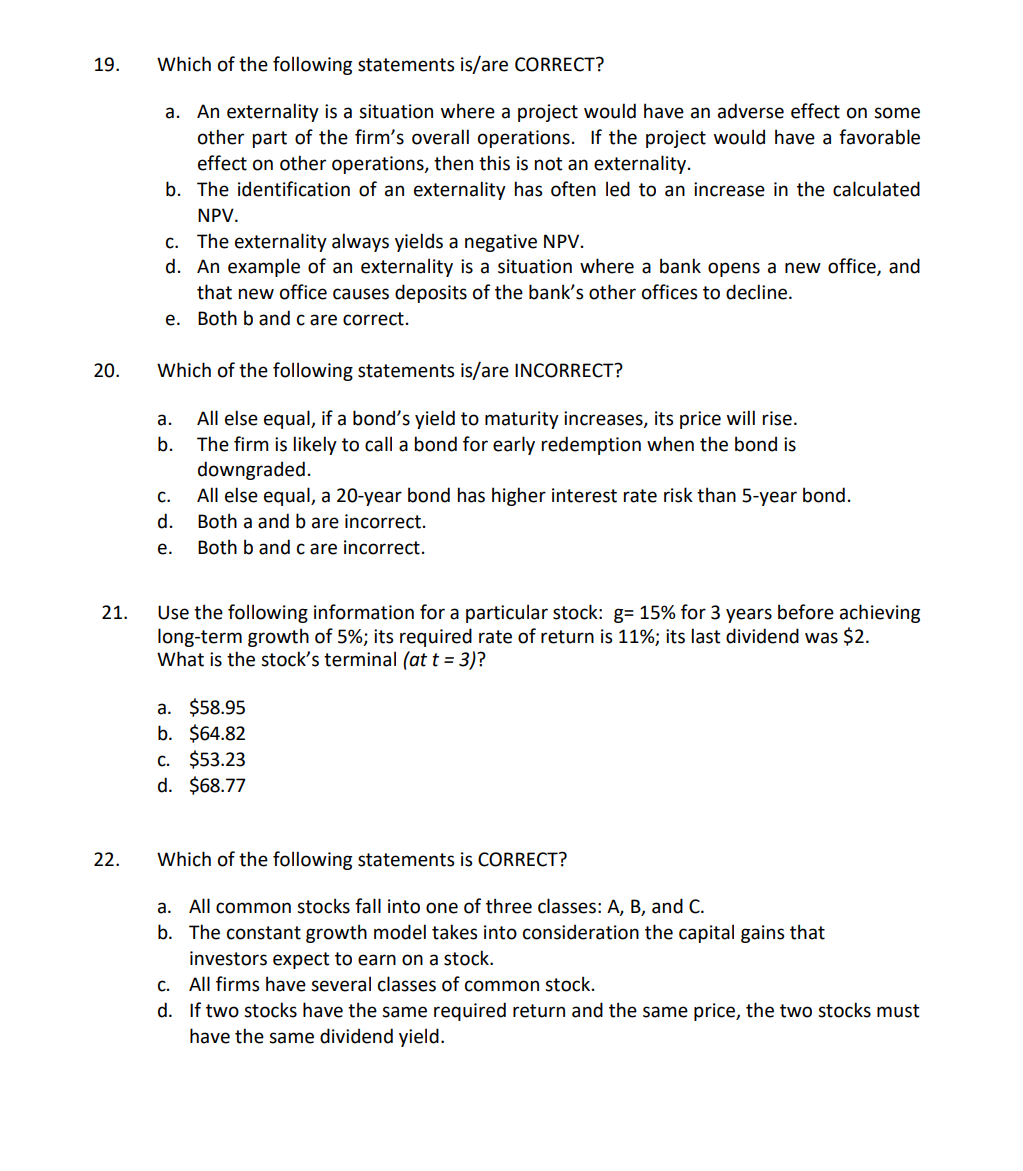
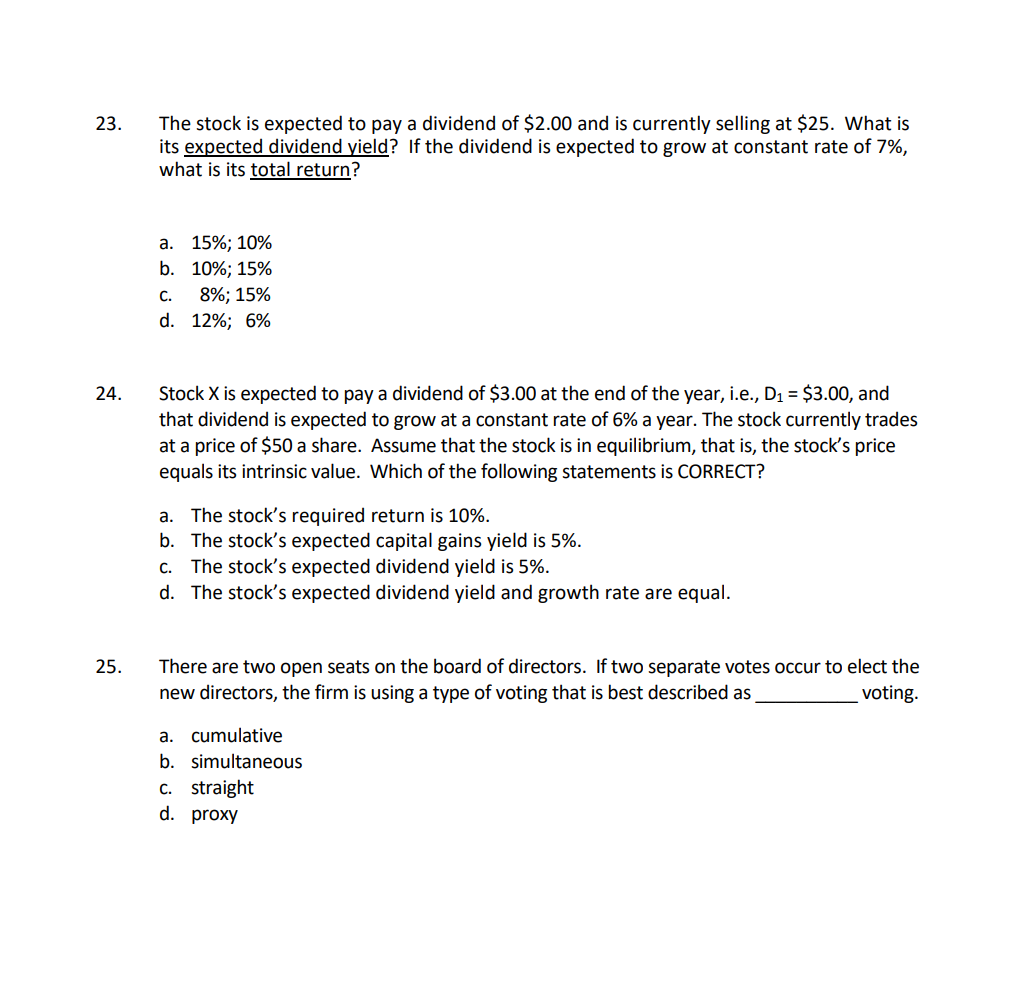
Need help with these problems
Piease answer questions 1-7 with the foiiowing information: 1. 2. Keith Urban Bookstores is considering a major expansion of its business. The details of the proposed expansion project are summarized below: The company will have to purchase $600,000 in equipment at t = 0. This is the depreciable cost. The project has an economic life of four years. The cost can be depreciated on a MACRS 3-year basis, which implies the following depreciation schedule: MACRS Depreciation Rates 0.33 0.45 0.15 0.07 kWh-3H At t = 0, the project requires that inventories increase by $40,000 and accounts payabie increase by $5,000. The change in net operating working capital is expected to be fully recovered at t = 4. (Hint: NWC = (CA-Ci.) The project's salvage value at the end of four years is expected to be $0. The company forecasts that the project will generate $700,000 in sales the rst two years {t = 1 and 2) and $400,000 in sales during the last two years (t = 3 and 4). Each year the project's operating costs excluding depreciation are expected to be 55% of sales revenue. The company's tax rate is 40%. The project's cost of capital is 11%. What is CFFA at year 0? $540,000 -$535,000 $635,000 a. b. -5645,000 C. d. What is CFFA at year 4? a. $159,000 b. $174,000 c. $159,800 d. $200,000 What is CFFA at year 2? a. $282,000 b. $290,000 c. $275,000 d. $297,000 What is the Depreciation for year 3? a. $ 90,000 b. 5 75,000 c. $125,000 0. $ 95,000 What is the Depreciation Tax Shield benet at year 2? a. 5 66,000 0. 5130.000 c. $108,000 d. 5 90,000 What is the NPV of this project? a. 5 73,987 0. $159,145 c. -5 27,456 0. $ 58,230 Should this project be undertaken? a. No 0. Yes Sensitivity analysis a. looks at the most reasonably optimistic and pessimistic results for a project. 0. illustrates how an increase in operating cash flow caused by changing both the revenue and the costs simultaneously will change the net present value for a project. c. is generally conducted prior to scenario analysis just to determine if the range of potential outcomes is acceptable. d. heLps identify the variable within a project that presents the greatest forecasting I'IS . 10. 11. 12. A company is considering a new project. The CFO plans to calculate the project's NPV by first estimating the relevant cash flows for each year of the project's life (the initial investment cost, the annual operating cash flows, and the terminal cash flow), then discounting those cash flows at the company's WACC. Which of the following factors should the CFO INCLUDE IN THE CASH FLOWS when estimating the relevant cash flows? a. All sunk costs that have been incurred relating to the project. b. All interest expenses on debt used to help nance the project. c Effects of the project on other divisions of the firm, but only if those effects lower the project's own direct cash flows. d. Sunk costs that have been incurred relating to the project, but only if those costs were incurred prior to the Current year. e. The investment in working capital required to operate the project, even if that investment will be recovered at the end of the project's life. You are analyzing a project and have developed the following estimates. The depreciation is $2,700 a year and the tax rate is 34 percent. What is the Best-Case operating cash flow? Base Case Lower Bound Upper Bound Unit Sales 1,600 1,500 1,700 Sales Price $34 $30 $37 VCfunit $18 $17 519 Fixed Costs $7,000 $6,500 $7,700 a. -$13,473 b. 519,068 c. 516,701 d. 517,423 Blake Shelton Company's bonds, with 12% coupon rate, mature in 9 years and have a par value of $1,000. The market interest rate for the bonds is 10.5%. What is the bond's price? (Semi-annualiy compounding) a. 5 916.11 b. 51,750.06 c. $1,085.98 d. $1,145.07 e. $1,099.71 Sam Hunt Enterprises' non-callable bonds currently sell for $1,265. They have a 14-year maturity with yield to maturity of 7.47%. What is their coupon rate? (Semi-annually compounding) a. 7.50% b. 11.70% c. 9.50% d. 9.35% e. 10.55% 13. 14. 15. Which of the following has the highest interest rate risk? a. b. c. d. 10year zero coupon bond 10year Treasury bond 10year convertible bond 10year Corporate bond with rating of AAA Which of the following statements isfare INCORRECT? a. no A bond sells well above par value when its yield to maturity is higher than its coupon rate. Convertible bonds can be converted into a certain amount of cash at the discretion of CEO of the firm. Most bonds are trading in over the counter. All of the statements above are incorrect. Statements a and b are incorrect. Which of the following statements isfare most CORRECT? a. b. no A yield curve depicts an inverse relationship between bond price and yield to maturity. The primary purpose of protective covenants is to help protect stockholders from issuer actions. Junk bonds typically provide a lower yield to maturity than investment grade bonds. Sinking funds may be used to purchase bonds in the open market. Both b and d are correct. Piease answer questions 1 6-1 7 with the foilo wing information: . A and B are mutually exclusive projects. 0 The required rate of return is 10%. o The cutoff period is 3.5 years. Year Project A Project B 0 -$1,000 $1,000 1 500 100 2 200 400 3 100 300 4 500 600 16. If the company applies IRR decision, which project should be recommended? a. Project A because it has IRR of 11.?4%. b. Project A because it has IRR of 14.49%. c. Project B because it has IRR of 12.12%. d. Project B because it has IRR of 15.06%. 17. If the company applies payback period decision, which project should be recommended? a Project A because it has payback of 3.33 years. b. Project A because it has payback of 3.4 years. c. Project B because it has payback of 3.33 years. d. Project B because it has payback of 3.40 years. e. Neither of two projects in recommended. 18. Disadvantages of the payback method include the following. a. It ignores the time value of money. b. It is consistent with the goal of maximizing shareholder wealth. c. It ignores cash flows beyond the payback period. d. All of the above are correct. e. Both a and c are correct. 19. Which of the following statements is/are CORRECT? a. An externality is a situation where a project would have an adverse effect on some other part of the rm's overall operations. If the project would have a favorable effect on other operations, then this is not an externality. b. The identification of an externality has often led to an increase in the calculated NPV. c. The externality always yields a negative NPV. d. An example of an externality is a situation where a bank opens a new ofce, and that new ofce causes deposits of the bank's other ofces to decline. e. Both b and c are correct. 20. Which of the following statements is/are INCORRECT? a. All else equal, if a bond's yield to maturity increases, its price will rise. b. The rm is likely to call a bond for early redemption when the bond is downgraded. c. All else equal, a 20-year bond has higher interest rate risk than 5-year bond. d. Both a and I: are incorrect. e. Both b and c are incorrect. 21. Use the following information for a particular stock: g= 15% for 3 years before achieving long-term growth of 5%; its required rate of return is 11%; its last dividend was 52. What is the stock's terminal (of t = 3)? a. 558.95 b. 564.82 c. 553.23 d. 568.77 22. Which of the following statements is CORRECT? a. All common stocks fall into one of three classes: A, B, and C. b. The constant growth model takes into consideration the capital gains that investors expect to earn on a stock. All rms have several classes of common stock. d. If two stocks have the same required return and the same price, the two stocks must have the same dividend yield. E" 23. 24. 25. The stock is expected to pay a dividend of $2.00 and is currently selling at 525. What is its expected dividend yield? If the dividend is expected to grow at constant rate of 7%, what is its total return? a. 15%; 10% b. 10%; 15% c. 8%; 15% d. 12%; 6% Stock x is expected to paya dividend of $3.00 at the end of the year, i.e., D1 = $300. and that dividend is expected to grow at a constant rate of 6% a year. The stock currently trades at a price of $50 a share. Assume that the stock is in equilibrium, that is, the stock's price equals its intrinsic value. Which of the following statements is CORRECT? a. The stock's required return is 10%. b. The stock's expected capital gains yield is 5%. c. The stock's expected dividend yield is 5%. d. The stock's expected dividend yield and growth rate are equal. There are two open seats on the board of directors. If two separate votes occur to elect the new directors, the firm is using a type of voting that is best described as voting. a. cumulative b. simultaneous c. straight d. proxy







